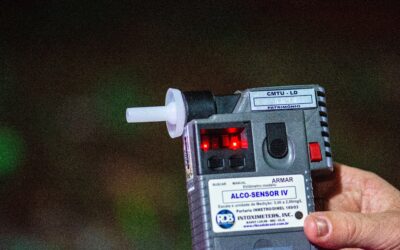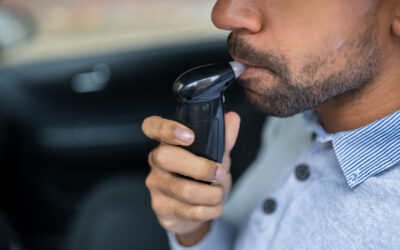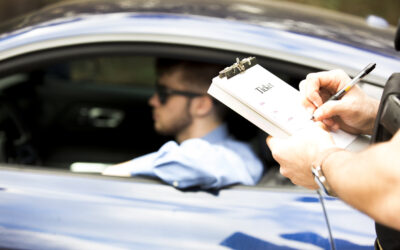DWI Offense Levels and Consequences in Minnesota
Working with the Minnesota DUI lawyers at Sieben Edmunds Miller will ensure that you are given fair treatment and the best possible results.
Free Case Evaluation
Don’t Let A DWI Conviction Derail Your Life!
Being accused of DWI or DUI can have a dramatic impact on your life. Choosing the right DWI attorney to defend you can mean the difference between a slap on the wrist and lifelong consequences. If you have been charged with a DWI or DUI, you need an experienced Minneapolis criminal defense lawyer and St.Paul criminal defense lawyer to help get you through this tough time in your life. Challenging a DWI / DUI case can be a complex process, but an experienced attorney knows what it takes.
The team at Sieben Edmunds Miller has helped many individuals charged with DUI or DWI clear their names and avoid a conviction. You can reach us by calling (651) 323-2464.
Minnesota DWI Offense Levels
Sieben Edmunds Miller
Fourth Degree DWI in Minnesota
A fourth degree DWI may be a misdemeanor, but it should not be taken lightly. You will generally be charged with fourth degree DWI if it is your first offense and you took a blood alcohol test that returned a result of .08 or more, but less than .16. You can also be charged with a 4th degree DWI if your results are below .08 if it is alleged that you were impaired by alcohol while driving. This charge comes with a punishment of up to 90 days in jail and a $1,000 fine.
Third Degree DWI in Minnesota
If you are charged with a third degree DWI, your alleged crime has been escalated to a gross misdemeanor. This may be deemed necessary by the court if you have had a previous DWI charge in ten years or if you refused to take a blood alcohol test at the time of your arrest. You also can be charged with a DWI if your chemical test returns a result greater than .16. You face up to a year in jail and up to a $3,000 fine if you are convicted of a third degree DWI.
Second Degree DWI in Minnesota
When you are charged with a second degree DWI you are facing a gross misdemeanor charge. This may be your current charge if you have been charged with two DWI offenses in the past ten years, or if you have been charged with DWI once before but aggravating factors exist. The punishment for a second degree DWI is up to one year in jail, up to a $3,000 fine, and the potential of your vehicle being seized.
First Degree DWI in Minnesota
A first degree DWI is considered the most serious type of DWI offense. It is a felony in the state of Minnesota. You can be charged with a first degree DWI if you have been charged with one previously, if you have a prior conviction for criminal vehicular operation, or if you have had three prior DWI incidents in the past ten years. A first degree DWI conviction is the most serious, with a potential of up to seven years in prison and up to a $14,000 fine.
Blood Alcohol Test Refusal
Refusing a blood alcohol test at the time of your arrest for a DUI or DWI can mean an immediate suspension of your license. It can also affect the level of offense you are charged with. However, you do have a right to refuse certain types of tests. For example, you can refuse to take either a blood or urine test, but you cannot refuse both. The attorneys at Sieben Edmunds Miller will analyze the facts and the law regarding your test refusal charge.
Aggravating Factors
Aggravating factors are another aspect of your charges that can affect your offense level. There can be a variety of aggravating factors. When you work with the lawyers of Sieben Edmunds Miller we will explain to you the specifics of your case and how to best defend against the alleged aggravating factors.
Get a Free Case Evaluation
We are here to help. Let us evaluate your case for you. Free of charge – no obligation. Complete our free case evaluation form or call us directly at (651) 323-2464.
Recent Blog Posts
Challenging the Results: How a Criminal Defense Attorney Can Fight a DWI Charge Based on Faulty Field Sobriety Tests
A DWI arrest in Minnesota can be a frightening and disorienting experience. Often, the prosecution's case hinges heavily on the results of field sobriety tests (FSTs). However, these tests are not infallible, and a skilled criminal defense attorney can challenge their...
What to Expect During a Minnesota DWI Trial
A DWI trial is not something to take lightly. The prosecution will present evidence, including chemical test results, field sobriety test performance, and officer testimony, in an attempt to prove your guilt beyond a reasonable doubt. However, just because you have...
How Aggravating Factors Can Impact Your DWI Case
Driving while intoxicated is a serious offense in Minnesota, but not all DWI charges are treated equally. Some cases are more severe than others due to specific circumstances that make the offense more dangerous. These circumstances, known as aggravating factors in a...
Top 5 Myths About DWI Charges in Minnesota Debunked
Driving while intoxicated (DWI) is a serious charge in Minnesota, with potentially life-altering consequences. However, there are numerous misconceptions surrounding DWI charges that can lead to misunderstandings about your rights and the legal process. If you’ve been...
What Are the Criminal Consequences of Leaving the Scene of an Accident in Minnesota?
Leaving the scene of an accident, commonly referred to as a hit and run, is a serious criminal offense in Minnesota. Whether the accident involves property damage, injury, or death, drivers are legally obligated to stop and provide their information. Failing to do so...
What to Do if You Are Pulled Over for a Suspected DWI in Minnesota
Getting pulled over for a suspected DWI (Driving While Intoxicated) in Minnesota is a nerve-wracking experience, but how you respond during the traffic stop can significantly impact the outcome of your case. It's important to know your rights and understand the steps...
Free Case Evaluation
Contact Info
Note: The use of the Internet or this form for communication with the firm or any individual member of the firm does not establish an attorney-client relationship. Confidential or time-sensitive information should not be sent through this form.





